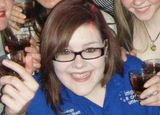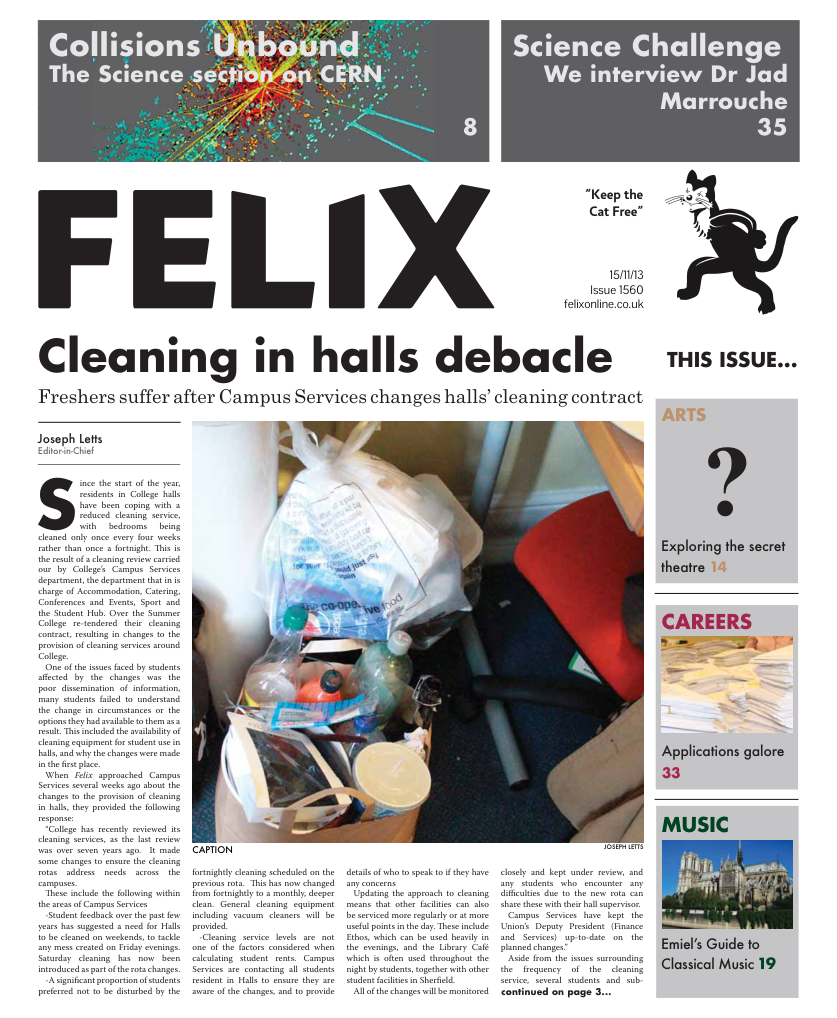Unblinded by greatness
Philippa Skett talks to the researcher who turned the boson data into the discovery
The Collider exhibition is moulded around the unveiling of the dataset confirming the boson detection earlier this year. It begins by telling the story through a film starring those at CERN in mid 2013, offering the different perspectives of students, fellows and researchers. One of these students is Mingming Yang, only a graduate in the fifth year of her PhD, but who plays one of the biggest parts in this story. Experiments within the Large Hadron Collider had been repeatedly run for several months running up to the discovery, but the data had simply been squirrelled away before one complete, final analysis. This analysis that would either confirm completely there was a boson, or return them back to square one. Up until June 15th, no one had seen this final set of data. The revelation and analysis of this life changing dataset was called the unblinding. On June 15th, this unblinding was done by Yang, alone in the early hours of the morning. It was down to her, alongside a few others, to confirm if their research was about to propel them into dizzying heights of fame within the scientific community or simply come crashing down around them. In the exhibition’s film, an actress, who portrays Yang as a northerner, features her talking about sleeping in her office, relentless work and finally the triumphant feeling when she first realised the data did indeed prove the boson to exist. Later on in the exhibition, in a mock up of the CERN hallways, a projection of this actress is pacing up and down in an actual office, amidst white boards covered in scribbles, overflowing filing cabinets and a star wars box set (on VHS). It is in this mock up set, her northern stunt double pacing on repeat being her, that we met Yang, who first commented on the size of the lab. “In reality, my office was half the size, and I shared it with four other students.” A charming, friendly woman, she didn’t even reveal her role in the boson discovery until much later. It seems that graceful humility is a common thread throughout the realm of particle physics, with Higgs himself also being demure and modest in his role of the discovery. She took time out of her busy schedule to come to the launch, but unfortunately her colleagues were unable to do the same. “They just have too much work,” hinting that the discovery was just the beginning of a longer, more extensive road into the depths of particle physics. We asked her what she thought of Collider, and if it was true to what happened at CERN at the time. On her northern representative, she says that the excitement displayed by the actress was definitely subpar on how she felt after unblinding the data. “I was jumping around, but I could not tell anyone. I was more excited then it is shown here.” Yang was also quick to dispel the idea that she was sleeping under her desk- “I did not do this, I stayed at a local B & B for 68 Swiss franks a night!” -although she did admit to only getting about four hours sleep at a time in the past two years. She was also keen to stress it is not just her role that makes the story so exciting. “I think the play at the beginning is good; part of the story are the words I said, but I think [the unblinding] is a combination of all the stories.” Despite her own impressive role in the unblinding, she spoke highly of her peers, mentioning Josh Bendavid and Fabian Stoedi, who were also on the hunt for the Higgs boson. She stressed repeatedly that her colleagues “are going to be big [in the field] and are amazing at their job. They are some of the best.” During the run up she was in constant contact with Josh in particular, “I would call him up constantly, at 2pm, 3pm, and 4pm…” She explained that for her, the unblinding was the accumulation of a whole team’s effort, not just one moment of triumph, and through it they gained a sense of community unlike any other- “They are my colleagues, they are teaching me, but they are also my friends. This goal connects us together…It is our work that we have dedicated our entire life to, and we have [sense of] belonging through that. “ On her time at CERN, she said it was “the most intensive three years, so after this I need to take a break!” I ask her if all of this, the sleepless nights, the small office, the lack of air conditioning, the competition with ATLAS, was a problem. It doesn’t matter, Yang replied. She simply said, “I was happy.” She only had time to stay in the UK for a few days, as she is still analysing the data from 2011 and 2012. She plans to publish her PhD thesis using the data with the working title of “On the observation of the decay of the Higgs boson into 2 photons.” An impressive title that few other physics PhD students can offer, but one she deserves more than anyone else. Her team, the one she was so keen to talk about, the one whose successes she heralded over discussing her own, and the team that has become her family, made her shine with pride. They should be proud too, not just for their work in the boson discovery, but to have worked alongside what I feel soon will become another great name in the world of particle physics in years to come.






